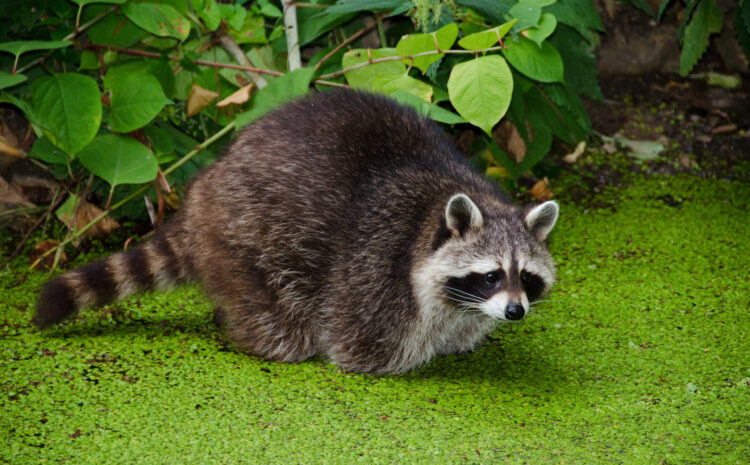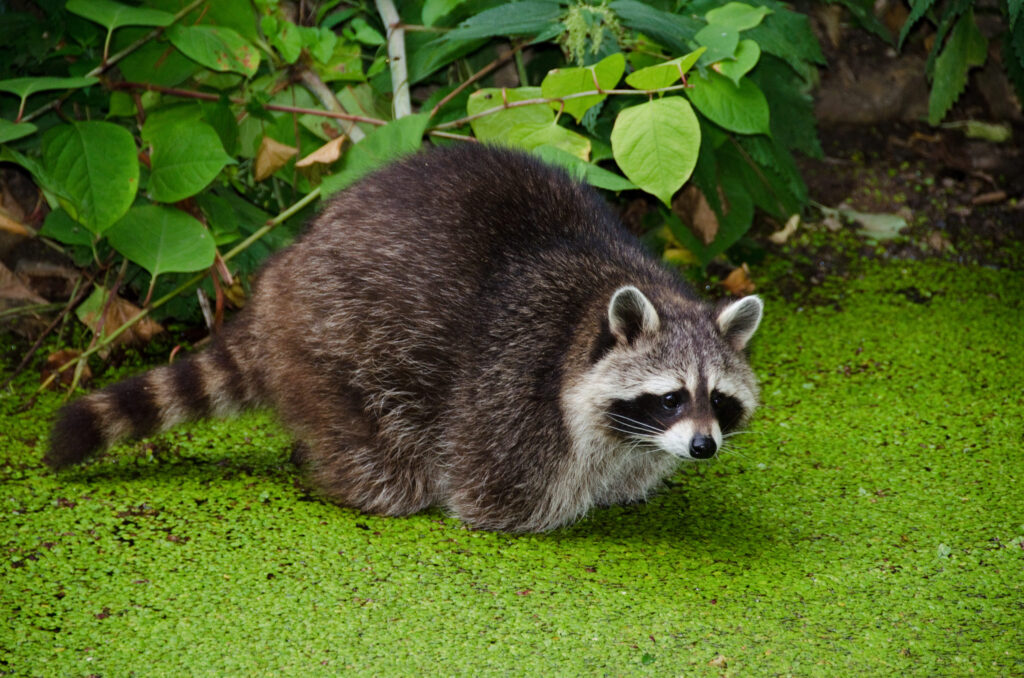
Racoon Prevention During Spring
Racoon Prevention During Spring

With Spring around the corner, expect to see more racoons out. These trash pandas may look cute, but they can be quite aggressive and destructive. Furthermore, they can carry numerous diseases and viruses that can lead to infection. However, fear not, if you are having a raccoon problem, there are ways of taken care of the issue safely and humanely!
The Issues Racoons Cause
While also being responsible for 60% of the rabies cases in Maryland, as well as having the ability to transmit canine distemper and parvovirus to our canine friends (Maryland DNR), racoons can also disturb your home life. Most know racoons as trash can dwellers, usually resulting in a tipped over trash bin, however, they can also wreck havoc to your home.
Racoons can:
- Tear holes in the roof of your house, gaining access to the attic
- Destroy attic vents and fans
- Destroy insulation and support beans in the attic
- Burrow and make nests under sheds and desk
All of these can turn these cute looking trash pandas into quite the nuisance for you and your family. Therefore, take preventative measures to ensure that your home does not get sought after by racoons.
Prevention
First and foremost, the most important step to take is prevention. If you can make sure that raccoons never see your home as a potential habitat than you can completely avoid this issue altogether.
- Close off Entry Points
- As with every pest we list on here, it is important that you make sure your home is completely sealed off from the outside. Ensure screens are fixed and holes in the foundation are repaired.
- Trim Trees
- Raccoons are able to climb and will use trees as a method of entering your home through the roof.
- Ensure Trash Cans are Covered
- Raccoons will be attracted to your home if they are able to get a steady stream of food from it. Therefore, make sure they are unable to get into your trash.
- Ensure you use metal trash cans
- Weight down the trash can lids
- Raccoons will be attracted to your home if they are able to get a steady stream of food from it. Therefore, make sure they are unable to get into your trash.
Removal
Trapping is the most effective means of removing a raccoon from your property. It is also something you can do by yourself, without the help of a professional! However, that being said, there are proper techniques that should be used when handling a trap, especially with a live animal inside.
- Make sure to carefully read the instructions of the trap! It is extremely important that you understand what you are handling and how to do so properly.
- Bait: Make sure you are using proper raccoon bait (fish, watermelon, sugar-coated fruit or vegetables.
- Make the trap blend in:Make sure the trap is hidden well and disguised properly.
Safety and Humane Tips
- Weather
- Make sure live animals are relocated as soon as possible and not kept trapped outside in the cold or heat. Furthermore, wild animals are prone to panic and may injure themselves (fatally even) if left trapped for an extended period of time.
- Nursing Mother
- Make sure you have not captured a nursing mother by checking the belly of the animal. Relocating her will result in the death of her babies. (It is advised to call pest control to help humanely take care of the issue)
Releasing
Before releasing the animals, call your local pest control agency or animal control center to assist in proper releasing. Someone inexperience may end up getting bit, as raccoons can be quite aggressive.
When it comes to raccoons, we urge you to call Accurate Pest Control. We are experts and will handle the situation without harm to the animal, yourself, or your family! You can trust that we have you and the raccoon’s best interest at heart!
